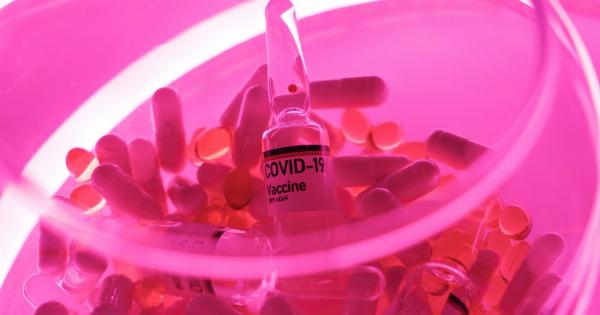In today’s modern world, Wi-Fi has become an essential aspect of our daily lives. With wireless networks present almost everywhere, it is hard to escape their reach.
However, as technology continues to evolve, concerns have arisen, especially regarding the potential effects of Wi-Fi on pregnant women. With conflicting information available, it is important to assess the scientific evidence and understand whether there is a need for concern during pregnancy.
Understanding Wi-Fi and its Potential Risks
To comprehend the possible impact of Wi-Fi on pregnancy, it is crucial to grasp the basics of Wi-Fi technology. Wi-Fi, short for Wireless Fidelity, refers to the wireless communication of data between devices using radio waves.
These radio waves transmit information through the air, allowing devices to connect to the internet without the need for physical wires.
Concerns about the health effects of Wi-Fi stem from the fact that these radio waves belong to the category of non-ionizing radiation.
Unlike ionizing radiation (such as X-rays and UV rays), non-ionizing radiation lacks the energy required to remove tightly bound electrons from atoms or molecules.
Studies on the potential risks of non-ionizing radiation have been conducted for several years. Researchers have predominantly focused on radio frequencies used in other wireless technologies, such as mobile phones.
Wi-Fi operates in a similar frequency range, prompting concerns about its safety, particularly during pregnancy.
The Research Behind Wi-Fi and Pregnancy
The scientific community has extensively investigated the possible connection between Wi-Fi exposure and its effects on pregnancy. Numerous studies have explored this correlation, evaluating potential risks during crucial stages of fetal development.
It is important to note that research in this area is ongoing and has yielded mixed results thus far.
A study published in the Journal of Obstetrics and Gynaecology Canada examined the potential effects of electromagnetic field (EMF) exposure, including Wi-Fi, on pregnancy.
The researchers found no conclusive evidence linking EMF exposure to adverse pregnancy outcomes, including preterm birth, birth weight, or fetal growth restriction.
However, a study conducted by the Kaiser Permanente Division of Research suggested a possible association between Wi-Fi radiation exposure during pregnancy and a higher risk of miscarriage.
The study found that pregnant women exposed to higher levels of non-ionizing radiation, specifically from devices such as laptops and smartphones, were more likely to experience miscarriages.
In contrast, a comprehensive review published in the journal Environmental Research concluded that the evidence regarding Wi-Fi exposure during pregnancy and its potential risks is limited and inconsistent.
The review highlighted the need for further research to draw definitive conclusions.
Safe Usage Tips for Pregnant Women
While the effects of Wi-Fi on pregnancy remain unclear, it is advisable for pregnant women to take certain precautions to minimize potential risks. Here are a few tips for safe Wi-Fi usage during pregnancy:.
1. Limit exposure time
Reducing the duration of Wi-Fi exposure can help minimize any potential risks. If possible, limit your time in Wi-Fi environments and turn off Wi-Fi when not in use.
2. Create distance
Maintaining a safe distance from Wi-Fi routers and other devices can decrease the intensity of exposure. Consider placing the router in a central location, away from living areas, and use devices from a distance whenever possible.
3. Opt for wired connections
Using Ethernet cables instead of Wi-Fi can eliminate exposure to radio waves altogether. Wired connections provide a safe and reliable alternative for internet connectivity during pregnancy.
4. Use shielding devices
Shielding devices, such as EMF protection products, can potentially reduce the impact of Wi-Fi radiation. These products aim to block or divert electromagnetic waves, ensuring minimal exposure for pregnant women.
5. Discuss concerns with healthcare provider
If you have specific concerns about Wi-Fi exposure during pregnancy, it is advisable to consult your healthcare provider. They can provide personalized advice based on your individual circumstances and help alleviate any anxieties.
Conclusion
As the debate continues, it is important to approach the topic of Wi-Fi and pregnancy with caution. While studies have produced conflicting results, it is always wise to prioritize safety.
By implementing the aforementioned precautions, pregnant women can minimize potential risks associated with Wi-Fi exposure. However, further research is necessary to gain a comprehensive understanding of the effects, if any, of Wi-Fi on pregnancy.































